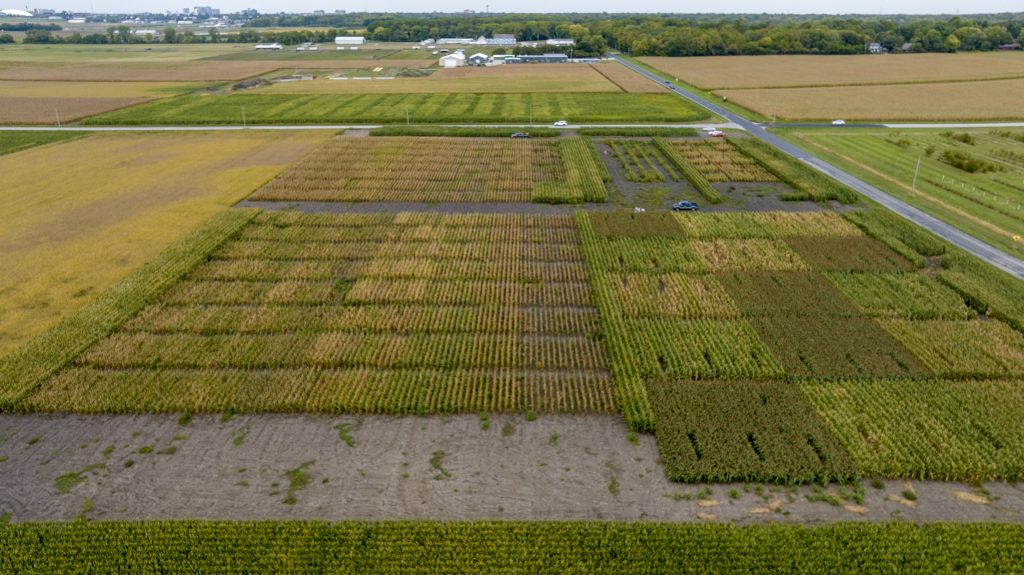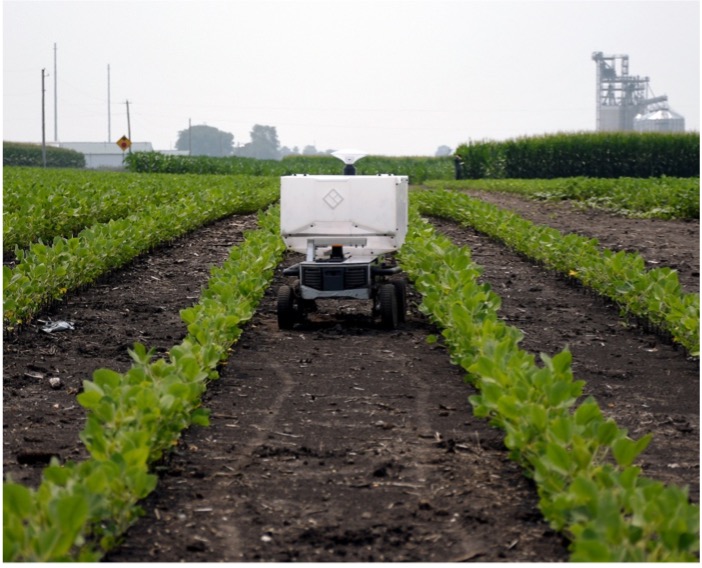

“I-FARM: Illinois Farming and Regenerative Management” — a collaboration between two institutes and a research center at the University of Illinois Urbana-Champaign — was funded with a three-year, $3.9 million grant from the U.S. Department of Agriculture in 2022.
The 80-acre testbed, where commodity crops and livestock are farmed using synergistic and sustainable practices, is a joint effort by the National Center for Supercomputing Applications (NCSA), the Institute for Sustainability, Energy, and Environment (iSEE), and the Center for Digital Agriculture (CDA). I-FARM was seed-funded by iSEE’s Campus as a Living Laboratory program in 2021 before its USDA National Institute of Food and Agriculture (NIFA) grant the following year.
“We will accelerate creation, maturation, and adoption of new management technologies that are fundamentally more sustainable, profitable, affordable, and scale-neutral. The new practices will be enabled by maturing digital agriculture technologies developed in wide-ranging research efforts at the University of Illinois,” said Primary Investigator Girish Chowdhary, Associate Professor of Agricultural & Biological Engineering and Computer Science.
NIFA’s “Farm of the Future” proposal process was extremely competitive, and only one was awarded from across the nation, said Co-Investigator and CDA Co-Director Vikram Adve, the Donald B.Gillies Professor of Computer Science. “This grant is a major endorsement of our growing strengths in digital ag,” Adve said.
The I-FARM testbed features improved precision farming with remote sensing; new drone and under-canopy autonomous robotic solutions for cover-crop planting, variable-rate input applications, and mechanical weeding; and artificial intelligence-enabled remote sensing for animal health prediction, nutrient quantification, and soil health.
“With the data gleaned from this project, the MyFarm app will provide farmers with an integrated dashboard that can be customized to the needs of their farm,” Chowdhary said. “Our focus on scale-neutral technologies can provide a solution to the worsening labor crisis for small farms and improve the sustainability of large and spatially heterogeneous farms.”
I-FARM technoeconomic simulations and farmer surveys will clarify barriers and incentives to adoption of sustainable technology to industry and farmers. Integrated extension activities will be conducted in a research space that is open to farmers, with demonstrations and training, easing the adoption of new technologies and opening new markets. The I-FARM team will also help the ag industry create new data-driven products and services for farmers, and an Industry Advisory Board and a Farmer Advisory Board will help the optimize impact on farming practices.
“Together, this integrated suite of solutions will lead to sustainable ways of meeting growing demand for agriculture in a changing climate,” said Co-PI and iSEE Director Madhu Khanna, the ACES Distinguished Professor of Agricultural & Consumer Economics. “The CDA, iSEE, and NCSA built the strongest research proposal by reaching across disciplines and bringing together expertise from all over the University of Illinois — from computer science to economics to crop science and animal science, we are exploring as many aspects as possible as we seek to build a farm of the future.”